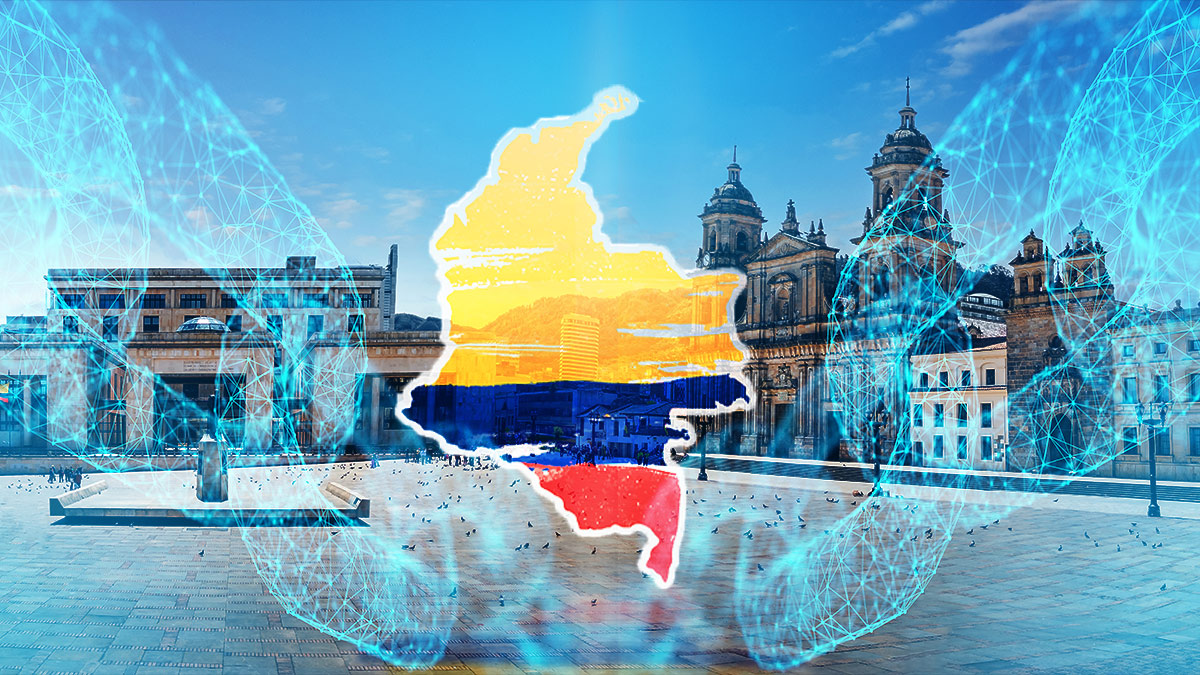
Colombia’s bitcoin and blockchain industry to grow more than 12% this year, according to report
- Regulations
- May 15, 2022
Despite the conflict between Russia and Ukraine, which has generated instability and uncertainty in the global economy, the bitcoin (BTC) and blockchain industry in Colombia has a growth outlook above 12%. This taking into account the boom that the fintech sector is experiencing, which includes the country’s financial technology companies.
According to the latest Colombia Fintech report, the number of startups offering financial services has been growing solidly in the last 20 years. Last year its growth was 39% and that same perspective is expected by the end of 2022, with 12.6% for the cryptocurrency sector globally and therefore locally.
In fact, Colombia is one of the main hubs of fintech startups in the region and concentrates 25.3% of the 1,102 financial technology companies of the countries that comprise the Pacific Alliance, such as Mexico (46.5%), Chile (16.2%) and Peru (12%).
As for the distribution of the segments of these fintech companies, in the last decade there have been important changes that reflect the new trends in the ecosystem.
While in 2010 there were only 64 companies in the Colombian Fintech ecosystem and 37.5% were classified as digital payments enterprises. In the last 11 years the scene has changed with the emergence of the cryptocurrency industry and blockchain-based projects, a segment that now encompasses 4.01% of the entire Fintech industry.

The report highlights the vertiginous growth that the cryptocurrency segment has experienced during the last decade in Colombia. And it also shows how the preference of the public around the world for financial services that are not linked to the traditional banking system has been increasing.
On the other hand, Colombian fintechs report a wide variety of technologies implemented within their innovation strategy.

Among these technologies, the Distributed Ledger Technology (DLT), which has been incorporated in 59% of companies of Colombia. While artificial intelligence and machine learning (machine learning) has been incorporated above 40% in the Fintech interviewed.

However, companies expect that in the coming years the use of these technologies will increase substantially, reaching their presence in 74% of the ecosystem as reflected in the report. The use of APIs (application programming interface) is highly popular within enterprises today, since 77% of companies report their use.
More growth for the bitcoin and blockchain ecosystem in Colombia
The number of fintechs has been growing solidly over the last 20 years in Colombia. At the end of 2021 there were 299 companies and at the end of April 2022, there were already 360. This represents an average growth of 16% per year over the last two decades, with approximately 14 new initiatives each year, on average, according to the report.
Erick Rincón, President of Colombia Fintech, recently highlighted the increase in companies that offer services or operate in the cryptocurrency ecosystem and blockchain projects. Although the number of new projects that have been emerging in the country is not specified.
As a new associate of Colombia Fintech, the cryptocurrency exchange Ripio is mentioned, as one of the platforms that recently began operating in Colombian territory, a fact that was also reported by CriptoNeticias.
In any case, it seems logical that the cryptocurrency industry will experience constant growth, given the increase in demand. This taking into account that 22.3% of Colombians have expectations of buying bitcoin, cryptocurrencies or tokens this year.
In fact, Colombia turned out to be the third country with the highest growth of owners of bitcoin and other cryptocurrencies worldwide, as follows from a survey by the Finder group.
In contrast to all the growth that the Fintech sector of cryptocurrencies and blockchain affiliated with Colombia Fintech has been experiencing, the report it shows a setback in the generation of employment for the sector.
In the cryptocurrency segment only 70 new collaborators generated jobs in 2021, that is 22% less than the 296 that generated jobs in 2019. This setback is attributed to the economic effects arising from the pandemic that paralyzed the world in 2020 and 2021.

The Colombia Fintech report also shows that the growth rate in total ecosystem revenues in 2021 had an increase of 74% compared to 2019. The segments that grew the most were Neobanks, along with cryptocurrencies and blockchain.
Further growth requires proper regulation
With this panorama, Colombia Fintech expects to sustain last year’s growth (39%) in terms, although they are also aware of the work that is necessary to consolidate the industry in general.
“It is necessary for people and companies to appropriate the tools to mature traction from demand,” said Erick Rincón, the president of Colombia Fintech at an event on the industry, as reported by local media.
Rincón also stressed on that occasion that “regulation should not stop innovation that is constantly advancing.” For this reason he believes that it is necessary to have a greater methodological definition in the Sandbox, also known as the cryptocurrency pilot, as some processes can delay digital entrepreneurs.
If you enter the Sandbox and after two years the supervisor gives you the endorsement to develop your innovative product, then that is no longer an innovative product or service. Regulation must be ideal to enable an industry that contributes to financial inclusion.
Erick Rincón, President of Colombia Fintech.
He also emphasized the work to strengthen the conditions of the Colombian environment at the level of software development and technology implementation. “Although the government has made progress in that aspect, we need a clearer policy to open ourselves to the introduction of technology from other places, and thus start working on the fourth industrial revolution,” Rincón said.
Although Colombia must wait for a better definition of what will happen in regulatory matters on bitcoin and other cryptocurrencies, Rincón believes that, in the meantime, do not put a brake and continue to work on financial education.
